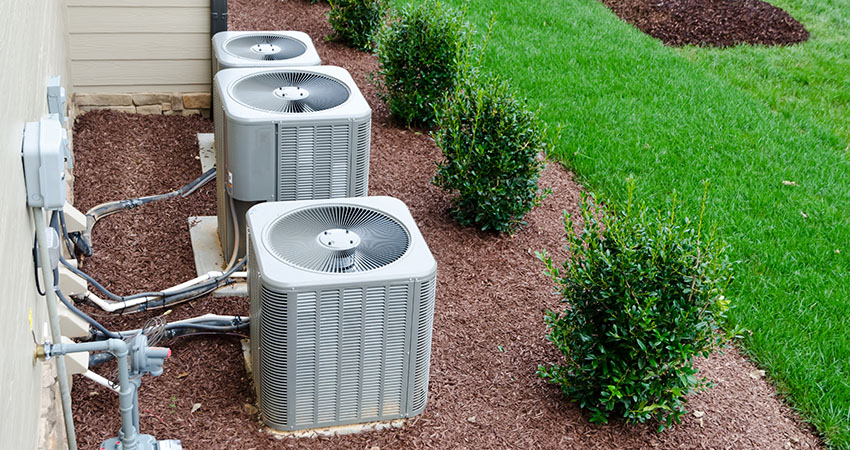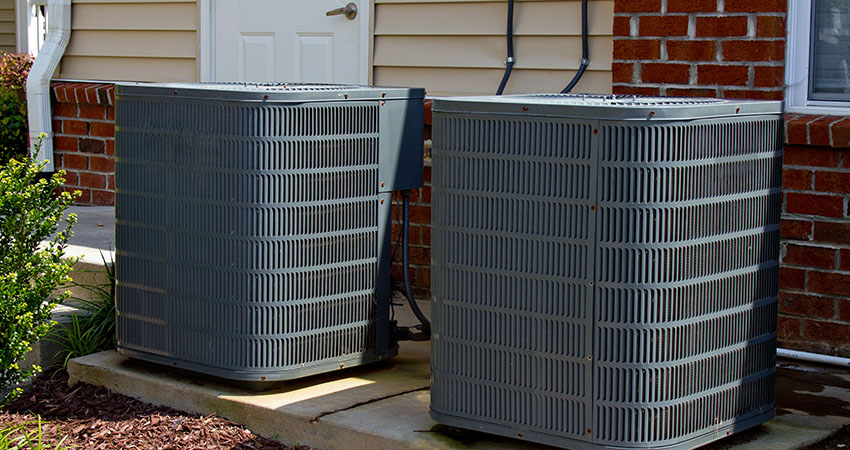Home & Garden
Why Is My HVAC Making Strange Noises
Published
4 years agoon
By
HGM
Modern HVACs operate without hardly making a noise, and if yours is starting to make some, it could be a sign of an impending problem and you may need an air conditioning repair service. Here are some common noises your HVAC can make and the reason behind them.
Banging Noises While the System Is Running
A banging noise coming from somewhere deep within the unit is an indication of compressor problems. The reasoning behind is most likely loose or broken parts, or perhaps an unbalanced blower that bangs against neighboring components while functioning. Get your unit checked by an HVAC expert at the earliest in order to prevent further damage.
Clanking of Parts While the HVAC Is Switched On
This, once again, is caused as a result of loose or unbalanced parts inside the HVAC unit. Since the interior is supposed to be tightly sealed in order to prevent refrigerant leakage, a clanking sound usually also means failed seal, and the HVAC not being able to do its job efficiently. If the problem is with the blower or fan assembly, just like the above, the longer you leave it as it is, the more risk there will be of accompanying parts and components getting damaged. Do the smart thing and call an HVAC repair professional to take a look at the problem and propose solutions.
Sudden Repetitive Clicking Sound from The Inside of the Unit
A clicking sound, such as a switch flicking on or off inside the HVAC for a moment after turning it on is normal, and is the result of the relay system turning on the compressor power supply. However, if the clicking becomes too persistent, you have trouble on your hands as it could mean defective relay or other key electronic component, which is preventing the compressor circuitry from turning on and hence, hindering proper operation. This issue, while not as serious as the above two, is still of considerable importance to ensure proper HVAC operation, and therefore, demands professional check up by a trained professional.
Buzzing or Flapping Noise Near the Air Throw Fan
This kind of noise emanates from your outdoor HVAC unit as a result of blockage caused by dirt, dust and debris particles in the air, or in case there is something hindering the fan operation by blocking the blades from turning. Buzzing can also in rare cases result from excess vibration of the unit, in particular when the copper pipes rub against each other at a high frequency, due to unbalanced foundation. In either of these cases, it goes without saying that a professional visual checkup is in order so as to prevent the issue from escalating. Proper diagnosis in time can save you big bucks, not to mention save you significant money in electricity bills as an inefficient HVAC system works harder and requires more power.
An Odd Squealing Through the Ducts
If you can hear weird squealing, squeaking or rattling noises when you have your ear against the duct, it is most likely a sign that your blower has given away and the noise of the loose component struggling to hold on is being carried on and amplified through the duct system. The outdoor fan unit making excessive rattling noises is also a telltale sign that it is time for HVAC replacement and that waiting to get the unit fixed will only make things worse.
So, there is a short list of noises you keep an ear out for when your HVAC is working or even while it’s idle or completely switched off during off seasons. Heeding these warning signs and getting a professional involved will help you prevent the problem from escalating and avoid costly repairs. It will also ensure that your HVAC unit will last a long time to come. When looking for HVAC repair services McLean who can handle the issues of your HVAC, be extremely cautious, as someone who doesn’t have the required training to deal with HVAC issues is sure to do more harm than good to the system. Make sure to ask for certifications, and seek out reviews from past clients to make sure they can be trusted. Also, get quotes from multiple services to save money.


